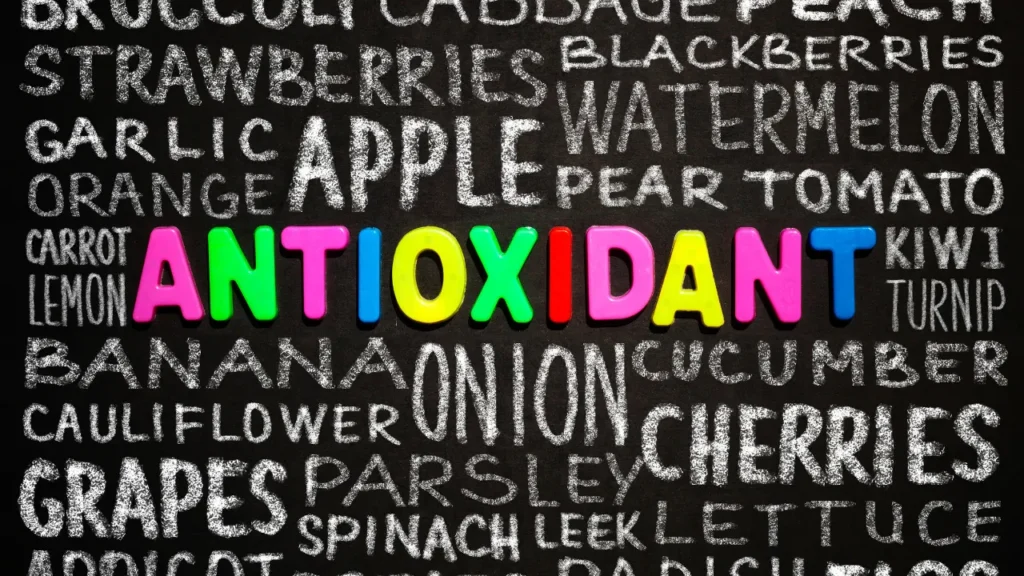In the past, different therapeutic uses have been made of the perennial herbaceous plant known as water avens (geum rivale), which belongs to the rosaceae family. This herb grows best in wet, wooded regions and is abundantly found in Europe, Asia, and North America. Rhizomes, flowers, and the leaves of the plant are all used for therapeutic purposes. In order to maximize the use of water avens as a nutritional supplement, research has recently concentrated on studying the chemistry and pharmacological properties of the plant. This article explores the chemical make-up of water avens, as well as the health advantages, recommended dosage, possible side effects, drug interactions, and responsible use.
You May Also Like:
AMBRETTE: Benefits, Dosage, Side Effects, Drug Interactions, and Other Important Information
Water Avens: Benefits, Dosage, Side Effects, Drug Interactions, And Other Important Information is an original (NootropicsPlanet) article.
Nature of Water Avens
Water avens is a perennial herbaceous plant (geum rivale) that thrives in moist, shady areas like wooded areas and by streams. It usually grows to a height of 20–60 cm and has feathery leaves that are split with serrated edges. The plant produces bell-shaped, drooping flowers that can be as light as pastel purple or as dark as pinkish-brown. Achenes, which are tiny, one-seeded fruits that are dry and follow the blooms, help the plant spread.
Health Benefits of Water Avens
In the past, people have used water avens to treat a range of illnesses, such as respiratory problems, skin concerns, and stomach problems. Some of these conventional uses are supported by current scientific research:
- Digestive Health: Water avens have historically been used to treat stomach discomfort, diarrhea, and dysentery. The plant’s tannins have astringent properties that help lessen digestive system inflammation. Additionally, it enhances gastrointestinal health due to its antibacterial and antispasmodic properties.
- Anti-inflammatory Properties: The triterpenes and phenolic chemicals found in water avens have been shown to have anti-inflammatory properties that can be useful in treating inflammatory diseases such as inflammatory bowel disease, asthma, and arthritis.
- Antioxidant Activity: Water avens include powerful antioxidants in the form of flavonoids and phenolic substances that help shield cells from damage brought on by free radicals. Chronic conditions like cardiovascular disease, neurological diseases, and some cancers can be halted by doing this.
- Wound Healing: Water avens can be applied topically to relieve skin irritations and encourage wound healing. Its anti-inflammatory and antibacterial properties aid in minimizing inflammation and avoiding infection, hastening the healing process.

Chemistry of Water Avens
The medicinal effects of water avens are derived from a range of bio-active substances in the plant. Triterpenes, flavonoids, volatile oils, and phenolic chemicals are some of the most significant chemical components.
- Phenolic Compounds: The phenolic acids caffeic acid, p-coumaric acid, and chlorogenic acid found in water avens have anti-inflammatory and antioxidant properties. These substances assist in scavenging free radicals and lowering oxidative stress, which could help prevent the development of chronic diseases.
- Triterpenes: Known for their anti-inflammatory, antiviral, and anticancer properties, these substances include ursolic acid and oleanolic acid. They alter a number of physiological processes, including NF-B and MAPK signaling, which are crucial for inflammation and cell growth.
- Flavonoids: Flavonoids like quercetin, kaempferol, and apigenin are abundant in water avens. These substances have anti-inflammatory, anti-oxidative, and vasodilatory properties that can help in the treatment of cardiovascular illnesses, neurological disorders, and other medical ailments.
- Volatile Oils: The water avens essential oil is made up of a number of terpenes, such as limonene, caryophyllene oxide, and germacrene D. These substances are strong candidates for natural preservation and protection since they have antibacterial, anti-fungal, and insecticidal activities.
Physiological Properties of Water Avens
The bio-active components in water avens have a variety of physiological impacts on the body and brain. The main causes of these actions are the components’ antibacterial characteristics, antioxidant and anti-inflammatory properties, and regulation of cellular signaling pathways.
- Triterpenes: These include acids such as ursolic acid and oleanolic acid that interact with cellular signaling pathways including NF-B and MAPK, which are crucial for controlling inflammation, cell proliferation, and apoptosis.
- Antioxidant and Anti-inflammatory Properties: The flavonoids and phenolic chemicals found in water avens have strong antioxidant properties that help the body fight free radicals and lessen oxidative stress. Water avens can prevent the onset of chronic illnesses by shielding cells from oxidative damage. Furthermore, these substances reduce inflammation by obstructing pro-inflammatory cytokines and enzymes including COX-2 and 5-LOX.
- Antibacterial Properties: The volatile oils found in water avens, such as germacrene D, limonene, and caryophyllene oxide, have antibacterial and antifungal properties. By preventing the development of dangerous germs, these substances can help treat and prevent various diseases.

Optimal Dosage of Water Avens
The ideal water avens dosage varies according to yours age, weight, and your overall state of health. Before beginning a supplement plan, like with any supplement, it is essential to speak with your healthcare expert. There are no specific dosage recommendations for water avens at this time, however some suggestions for general use are as follows:
1. Making Tea: Making tea from the dried root or leaves of the plant is a common way to consume it. In a cup of boiling water, steep 1-2 tablespoons of dry water avens for 10 to 15 minutes. You can drink this tea up to three times daily.
2. Tincture: Concentrations of 1:5 or 1:10 (plant material to solvent ratio) of water avens tinctures are typically suggested by health experts. Adults often take 20–40 drops, diluted in water or juice, two–three times daily.
3. Capsules: You can take water avens tablets or capsules as directed by the manufacturer or at the advice of your doctor. For adults, a dose of 250–500 mg per day is typically regarded as safe.
Side Effects of Water Avens
When used sensibly and in moderation, water avens is typically regarded as safe. However, you can still experience some negative effects, such as:
1. Gastrointestinal Symptoms: Taking water avens might make you feel queasy, nauseous, or diarrheal, especially if you take it in big amounts or first thing in the morning.
2. Allergic Reactions: You could be allergic to water avens or any of its ingredients, which could result in skin rashes, irritation, or breathing symptoms. If these symptoms appear, stop using and seek medical attention.
3. Pregnancy and Breastfeeding: Not much is known about the safety of water avens during pregnancy or while breast feeding. It is advised to speak with your doctor before taking this product during these times.

Potential Substance Interactions with Water Avens
Despite being generally regarded as safe, water avens can interact with some drugs or other supplements. Among these possible interactions are:
1. Anticoagulants: When combined with anticoagulants like warfarin or heparin, water avens can have an additional impacts that can raise the risk of bleeding. Before combining water avens with these drugs, speak with your medical expert.
2. Anti-platelet Medications: In a similar vein, taking water avens together with anti-platelet medications like aspirin or clopidogrel can increase the risk of bleeding. Before combining these ingredients, seek medical advice.
3. Anti-hypertensive Drugs: The effects of anti-hypertensive drugs can be strengthened by water avens, which could result in abnormally low blood pressure. Before using water avens with these medications, keep a close eye on your blood pressure and speak with your medical practitioner.
Best Responsible Use of Water Avens
Take into account the following recommendations to ensure the best ethical usage of water avens as a dietary supplement:
1. Speak with a Medical Expert: Before starting a supplement regimen, speak with a medical expert to identify the right dosage, determine your own health state, and rule out any potential contraindications.
2. Begin with a Low Dose: Start with a modest dose of the supplement and gradually raise it as needed, watching for any negative responses. This reduces the possibility of difficulties while enabling the selection of the ideal dosage.
3. Comply with Dose Recommendations: To prevent overconsumption, follow the dosage recommendations given by the supplement’s manufacturer or healthcare professional.
4. Monitor for Interactions and Negative Effects: Be cautious of possible interactions and side effects with other drugs or dietary supplements. If negative reactions happen, stop using and seek medical advice.
5. Use High-Quality Products: To ensure the safety and effectiveness of the water avens supplements, make sure it comes from a recognized manufacturer and satisfies quality requirements.
Water Avens:
Conclusion
You can safely and responsibly adopt water avens into your daily healthcare regimen to take advantage of its possible health benefits by according to all of these rules and information we have provided in this article. However, it is still crucial to speak to your doctor first before beginning a water avens supplement. It is important to remember to begin with a low dose and increase it gradually while keeping an eye out for any negative responses or side effects. This lowers the risk of problems while enabling you to determine your ideal dosage.

References:
- Water Avens (Geum rivale) – Plant Profile and Traditional Uses. Retrieved from: https://www.botanical.com/botanical/mgmh/a/avens085.html
- Water Avens (Geum rivale) – Plant Profile and Traditional Uses. Retrieved from: https://pfaf.org/user/Plant.aspx?LatinName=Geum+rivale
- Chemical composition and biological activities of Geum rivale L. essential oil. Retrieved from: https://pubmed.ncbi.nlm.nih.gov/31197502/
- Antioxidant and Anti-Inflammatory Effects of Geum rivale L. Retrieved from: https://pubmed.ncbi.nlm.nih.gov/26146793/
- Therapeutic potential of triterpenes in inflammation and neurological disorders: A review. Retrieved from: https://pubmed.ncbi.nlm.nih.gov/27586800/
Important Note: The information contained in this article is for general informational purposes only, and should not be construed as health or medical advice, nor is it intended to diagnose, prevent, treat, or cure any disease or health condition. Before embarking on any diet, fitness regimen, or program of nutritional supplementation, it is advisable to consult your healthcare professional in order to determine its safety and probable efficacy in terms of your individual state of health.
Regarding Nutritional Supplements Or Other Non-Prescription Health Products: If any nutritional supplements or other non-prescription health products are mentioned in the foregoing article, any claims or statements made about them have not been evaluated by the U.S. Food and Drug Administration, and such nutritional supplements or other health products are not intended to diagnose, treat, cure, or prevent any disease.


